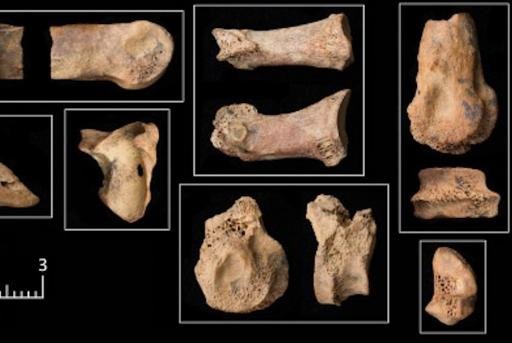Archaeologists found a plethora of animal bones that had been digested by dogs at an ancient Neolithic settlement in Jordan. Photo by the University of Copenhagen
Jan. 16 (UPI) -- New archaeological evidence excavated in Jordan suggests dogs may have helped humans hunt as early as 11,500 years ago.
Scientists analyzed hundreds of animal bones found at Shubayqa 6, a Neolithic settlement in northwest Jordan. The evidence showed humans and dogs lived alongside each other and hunted together.
"The study of the large assemblage of animal bones from Shubayqa 6 revealed a large proportion of bones with unmistakable signs of having passed through the digestive tract of another animal; these bones are so large that they cannot have been swallowed by humans, but must have been digested by dogs," lead researcher Lisa Yeomans, a zooarchaeologist with the University of Copenhagen, said in a news release.
Fossil evidence suggests the dogs weren't relegated to the fringes of the settlement but welcomed and integrated into day-to-day life, allowed to roam freely throughout Shubayqa 6.
Close analysis of fossil abundance at the site showed a correlation between the arrival of dog remains on the fossil timelines and an increase in the number of hares. Humans not only prized hares for their meat, but also used their bones to fashion beads.
Researchers think inhabitants of Shubayqa 6 and other Neolithic settlements appreciated dogs' ability to hunt and track hares.
"The use of dogs for hunting smaller, fast prey such as hares and foxes, perhaps driving them into enclosures, could provide an explanation that is in line with the evidence we have gathered," Yoemans said. "The long history of dog use, to hunt both small as well as larger prey, in the region is well known, and it would be strange not to consider hunting aided by dogs as a likely explanation for the sudden abundance of smaller prey in the archaeological record."
Yoemans and her colleagues detailed their hypothesis this week in the Journal of Anthropological Archaeology.
Researchers claim dogs may have also helped humans shift their hunting strategies, foregoing less selective approaches, like the use of nets, for more selective hunting techniques -- targeting individual hares.















